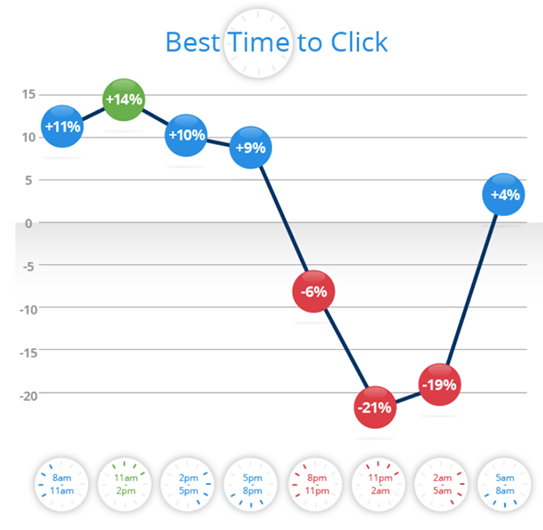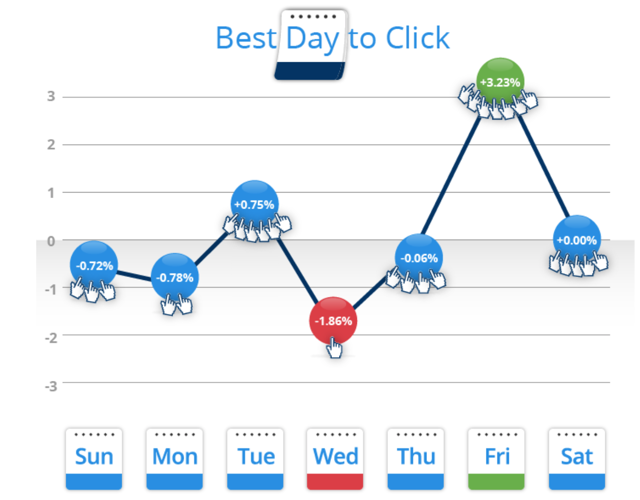How Often Should You Run PPC Campaigns

How Often Should You Run PPC Campaigns
Pay-per-click (PPC) campaigns can provide a much-needed boost to small businesses that are looking to compete for search engine traffic with larger companies. But small business owners need to effectively manage the timing, frequency, and length of PPC campaigns to get the benefits without breaking their budget.
A small business with an effective SEO strategy can boost its website ahead of the competition in search engine rankings. But ranking high in searches is not easy as competition on the web continues to grow.
Thankfully, a small business can compete by building an effective pay-per-click (PPC) advertising strategy. PPC is a common method of online marketing. Businesses will pay for space for online advertisements and pay a fee each time the ad is actually click.
Overall, 74% of small businesses with more than 50 employees use PPC advertising. Oppositely, only 30% of small businesses with fewer than 10 employees take advantage of PPC ads.
PPC advertising is an important tool for small businesses to develop brand recognition, a consistent web presence, increased website traffic, and a steady flow of new leads.
A small business needs to be smart with its PPC ad strategy. Running ads at the wrong time or frequency can lead to failure. This article will provide some prudent steps for small businesses looking to maximize their PPC ad strategy without breaking their budget.
No Time Like the Right Time
A recent survey shows that small businesses are split fairly evenly on how often they conduct PPC campaigns:
- 37% conduct them as needed
- 27% conduct them around the holidays
- 36% conduct them consistently
Determining the right time to run PPC ads is often overlooked. Even the most intriguing ad targeted at exactly the right audience will fail if nobody sees it. If you want your business’ PPC campaign to succeed, you need to figure out the best time to run your ads.
First, you need to understand that the term “best time” is subjective from one company to the next. But you can figure the ideal time to run your PPC ads if you look at things analytically.
Using Common Sense for Seasonality
For a majority of businesses, seasonal factors are pivotal to understand and monitor:
- In the United States, holiday season sales around Christmas accounted for at least 19% of annual revenue from 2000-2017.
- Summers are typically slowdown months for businesses. For example, 61% of restaurants notice a decline in patrons by as much as 20%.
Applying common sense to your PPC strategy is important to success, particularly if you run a business that sells seasonal products. For example, if you sell Halloween decorations, you are not going to get much interest if you run PPC ads in July. If you perform landscaping work, PPC campaigns will not produce favorable results if they are scheduled in December.
If you want your small business to thrive in the digital landscape, you will need to adapt to seasonal trends with analytical marketing planning. For instance, effective PPC ad management can improve your holiday season sale conversion rate while preventing overspending in a saturated search engine market.
However, seasonality goes beyond winter, spring, summer, and fall. It also goes beyond holidays. To determine the seasonality of your PPC campaigns, you should conduct a 3-month, year-over-year analysis to determine the seasonal increases in your ad traffic.
Hour by Hour, Day by Day
In addition to the time of year, the more specific timing for your PPC ads—which hours of the day or which days of the week—will depend on your target demographic. Age, location, and occupation are all important factors. You need to know your demographic well enough to predict when they will see your ad.
For example, if you are trying to target college students, you have to know their online habits. They tend to be more attentive online in the early afternoon or late at night. They also may spend more time online during the weekend.
But are there actual times of the day and days of the week that are most effective for PPC ads? Some experts say yes.
According to global advertising platform provider Infolinks, online audiences tend to interact more with ads during the day, with a peak in clicks taking place between 11:00 a.m. and 2:00 p.m.

During those mid-day hours, interaction with PPC ads increases by 14% over the average. This time period represents the peak of the workday when many people are fully engaged with their computers and mobile devices.
Conversely, Infolinks research shows that Tuesday and Friday are the best days of the week to schedule PPC ads.

Despite what the research says, you have to apply logic to your own unique business. Looking at your hard data, available through any PPC advertising platform, can help you confidently decide when to schedule your ads most effectively.
You can use conversion analytics to fine-tune your scheduling, figuring out when ads are performing well and when they aren’t. From there, you can start to adjust your campaign to maximize your PPC efforts on the days that get the most responses.
Discovering the best time to run PPC ads is a hands-on process. You need to evaluate the results almost daily to figure out the pattern for success. Through diligent evaluating and testing, your PPC campaign can deliver incredible ROI.
Exercise Your Patience for Maximum ROI
For a small business that makes the financial commitment to enter the world of PPC advertising, it’s not uncommon to want results right away. A strong PPC campaign, though, is built on a process of testing and optimization, which means that it takes time to see real results.
Google recommends advertisers analyze 30 to 60 days of data to understand trends within their PPC campaigns. That period allows you to examine a number of different factors, including:
- Keyword quality: AdWords calculates a Quality Score on the fly for each of your keywords whenever they match a user's search query. Your keyword's Quality Score may vary based on location, search query and search network.
- Bidding: AdWords runs an auction every single time it has an ad space available -- on a search result, or on a blog, news site, or some other page. Each auction decides which AdWords ads will show at that moment in that space. Your bid puts you in the auction.
- Campaign structure: Every AdWords account consists of several components, such as campaigns, ad groups, ads, and keywords. Within each campaign you have ad groups that have their own set of ads, and every ad group contains keywords.
All of those factors need to be analyzed carefully before any optimization changes are made.
Other experts recommend committing to a minimum of three months to realize ROI from a PPC campaign. PPC only works as a short-term strategy under certain circumstances with specific goals, like seasonal sales, promotions, or if event traffic volume.
The three-month period allows for several things to happen:
- Google gets to know your campaign better. In order to raise your Adwords Quality Score, you will need to get more clicks and establish a click-through rate.
- You get the data needed to strategically optimize and improve your campaign. The longer a campaign runs, the more data it collects. More data means better optimization.
- You will better understand the quality of your campaign following various tweaks and changes, helping you make better decisions for the current campaign, as well as future PPC ads.
Without ongoing optimization of your PPC advertising, it is very easy to spend, and in many cases waste, a lot of money running ads that will provide less than optimal ROI.
Learn 5 easy steps to optimize your website for search engines.
PPC: An Effective Strategy for Small Business Success
While search engine optimization is an important marketing strategy for all businesses, big brands and companies receive the most hits because they rank higher in searches for wide-ranging keywords.
To that end, small businesses need to increase their exposure with the use of PPC advertising. If you’re a small business owner, implementing an ongoing marketing strategy that includes PPC advertising will be an important part of your success within the digital landscape.
By effectively managing your PPC marketing, you can reach the right targets, turn those prospects into customers, and successfully build your business.
